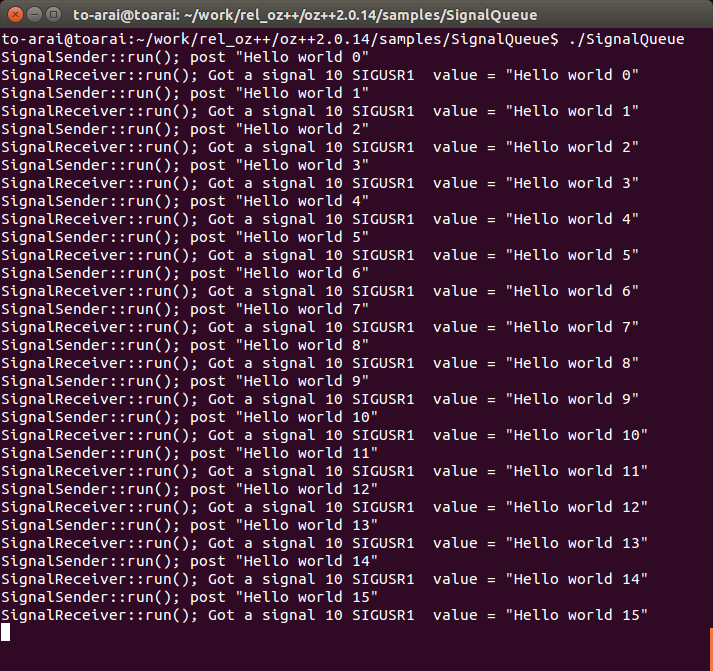
/****************************************************************************** * * Copyright (c) 2015 TOSHIYUKI ARAI. ALL RIGHTS RESERVED. * * Redistribution and use in source and binary forms, with or without * modification, are permitted provided that the following conditions * are met: * 1. Redistributions of source code must retain the above copyright * notice, this list of conditions, and the following disclaimer. * * 2. The name of the author may not be used to endorse or promote products * derived from this software without specific prior written permission. * * THIS SOFTWARE IS PROVIDED BY THE AUTHOR ``AS IS'' AND ANY EXPRESS OR * IMPLIED WARRANTIES, INCLUDING, BUT NOT LIMITED TO, THE IMPLIED WARRANTIES * OF MERCHANTABILITY AND FITNESS FOR A PARTICULAR PURPOSE ARE DISCLAIMED. * IN NO EVENT SHALL THE AUTHOR BE LIABLE FOR ANY DIRECT, INDIRECT, INCIDENTAL, * SPECIAL, EXEMPLARY, OR CONSEQUENTIAL DAMAGES (INCLUDING, BUT NOT LIMITED TO, * PROCUREMENT OF SUBSTITUTE GOODS OR SERVICES; LOSS OF USE, DATA, OR PROFITS; * OR BUSINESS INTERRUPTION) HOWEVER CAUSED AND ON ANY THEORY OF LIABILITY, * WHETHER IN CONTRACT, STRICT LIABILITY, OR TORT (INCLUDING NEGLIGENCE OR * OTHERWISE) ARISING IN ANY WAY OUT OF THE USE OF THIS SOFTWARE, EVEN IF * ADVISED OF THE POSSIBILITY OF SUCH DAMAGE. * * * SignalQueue.cpp * *****************************************************************************/ #include <oz++/CharString.h> #include <oz++/Thread.h> #include <oz++/Signal.h> #include <oz++/SignalQueue.h> #include <oz++/SignalSet.h> namespace OZ { class SignalSender: public Thread { private: bool looping; SignalQueue queue; public: SignalSender(int signo) :Thread(), looping(true), queue(signo) { } //Thread main procedure which can be called from Thread::start method. virtual void run() { int i = 0; while (looping) { sleep(1); char buffer[128]; sprintf(buffer, "Hello world %d", i++); CharString* msg = new CharString(buffer); printf("SignalSender::run(); post \"%s\"\n", buffer); queue.post(msg); } } }; class SignalReceiver :public Thread { private: bool looping; Signal signal; int signo; public: SignalReceiver(int signo) :Thread(), looping(true), signal(signo), signo(signo) { } //Thread main procedure which can be called from Thread::start method. virtual void run() { while (looping) { try { siginfo_t siginfo; signal.wait(siginfo); int sno = siginfo.si_signo; const char* name = Signal::toString(sno); if (sno == signo) { CharString* msg = (CharString*)siginfo.si_value.sival_ptr; if (msg) { printf("SignalReceiver::run(); Got a signal %d %s value = \"%s\"\n", sno, name, (const char*)(*msg)); delete msg; } } else { printf("Unexpcted signal %d %s\n", sno, name); } } catch (Exception& ex) { caught(ex); } } } }; } // int main(int argc, char* argv[]) { try { int signo = SIGUSR1; SignalSet set; set.add(signo); Thread::block(set); SignalSender sender(signo); sender.start(); SignalReceiver receiver(signo); receiver.start(); receiver.wait(); sender.wait(); } catch (Exception& ex) { caught(ex); } return 0; }